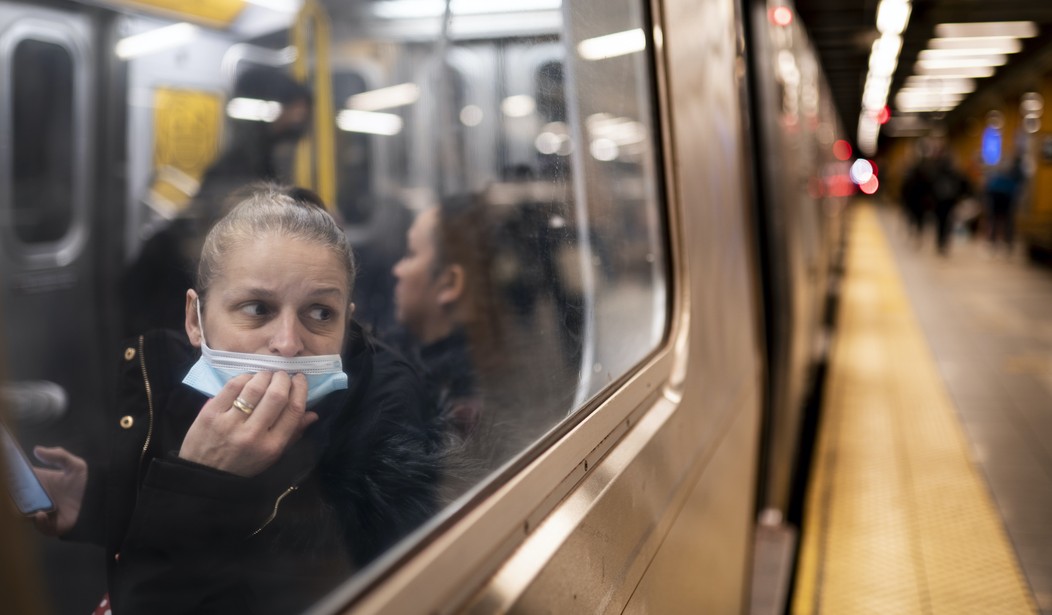Courage seems to be in short supply these days.
Recent events on the New York City subway system have brought this into focus. Last week, a woman was set on fire while sleeping on the F train. To make matters worse, she still hasn’t been identified. The attack was unprovoked, horrifying, and deeply tragic.
The bystanders on that train didn’t intervene. No one called for help. No one pointed out the suspect to authorities. The apathy surrounding the horrific act shows us a troubling trend: the utter absence of courage in our society.
The Guardian Angels have returned to the subways in response. This group is a red-beret-wearing volunteer patrol founded in 1979 by Curtis Sliwa.
Sliwa described the current state of the city, telling the New York Post:
“We’re now back to where we were when I started the group in 1979. It’s gone full circle. I’ve never seen it this bad.”
Their mission, unarmed crime prevention and providing a visible deterrent to criminals, is admirable, but it also raises a question: Why do we need them in the first place?
Guardian Angels will re-appear on subways again in response to sky-high crime pic.twitter.com/53lynsOvc6
— New York Post (@nypost) December 29, 2024
Part of the answer lies in what happened to Daniel Penny earlier this year. Penny, a Marine veteran, acted on the subway when a man began threatening passengers. He stepped in, restrained the man, and in the process, tragedy struck. The man died, and Penny found himself facing criminal charges.
Read More:
Many saw Penny as a hero, someone willing to protect others when faced with danger. Yet, instead of being celebrated, Penny became a symbol of societal division and was dragged through the court system.
Earlier this month, Penny was acquitted. But, as the saying goes, "the process is the punishment." This reality creates a chilling effect. People see what happened to Penny and think twice before stepping in to help.
Combine that with a society already struggling with a growing sense of isolation and distrust, and you have a recipe for apathy. Why risk personal safety, reputation, or even legal consequences for a stranger?
Contrast this with the behavior during the pandemic. People were quick to report their neighbors for perceived infractions—not wearing a mask, refusing a vaccine, walking the wrong way down a grocery store aisle, or even, as in the case of a friend of mine, letting their children ride bikes outside.
The self-righteousness of “pandemic policing” seemed to know no bounds. Minor inconveniences became moral battlegrounds. Gossip and public shaming were rampant. Government tip lines and coercive policies only amplified this dynamic. This created a culture where minor transgressions were policed with zeal, while pressing societal issues like an epidemic of domestic violence, substance abuse, and spiking student suicides were mere background noise to pandemic hyperbole.
Yet, when faced with truly difficult situations, like protecting the vulnerable among us, or intervening in a dangerous scenario, many crumble under the weight of cowardice. We’ve become a society that is quick to judge but slow to act. It’s easier to take a photo and post it on social media, captioned with a rant, than to physically step in and make a difference.
The psychology of courage is complex, but it boils down to this: We act when we feel supported and believe our actions are right. When society punishes people like Penny, it sends a loud and clear message: Stay quiet, stay uninvolved, and stay safe. When a society doesn’t recognize or reward courage, it will lose it altogether.
The Guardian Angels, despite their critics, exemplify this kind of courage. They walk into subway cars not knowing what they may encounter, armed only with their presence and a sense of duty. They remind us that courage isn’t about perfection—it’s about action.
As a nation, we must ask ourselves: What kind of society do we want to be? One where people cower in fear of doing the right thing, or one where courage is celebrated?
There’s a lot to learn from the Guardian Angels and from the tragedy on the F train. We need to foster a culture where stepping in is the norm, not the exception. Where being a good neighbor means more than pointing fingers or making a TikTok. Where courage is taught, rewarded, and remembered.
Because if we don’t, we’ll continue down this path of moral cowardice, and the price will be high—not just for the victims of violent crimes but for the tattered fabric of our society. Courage, after all, isn’t just an individual virtue. It’s a societal one. One of my favorite personal sayings is, "We create the culture we participate in."
And right now, we’re facing a crisis of courage.












